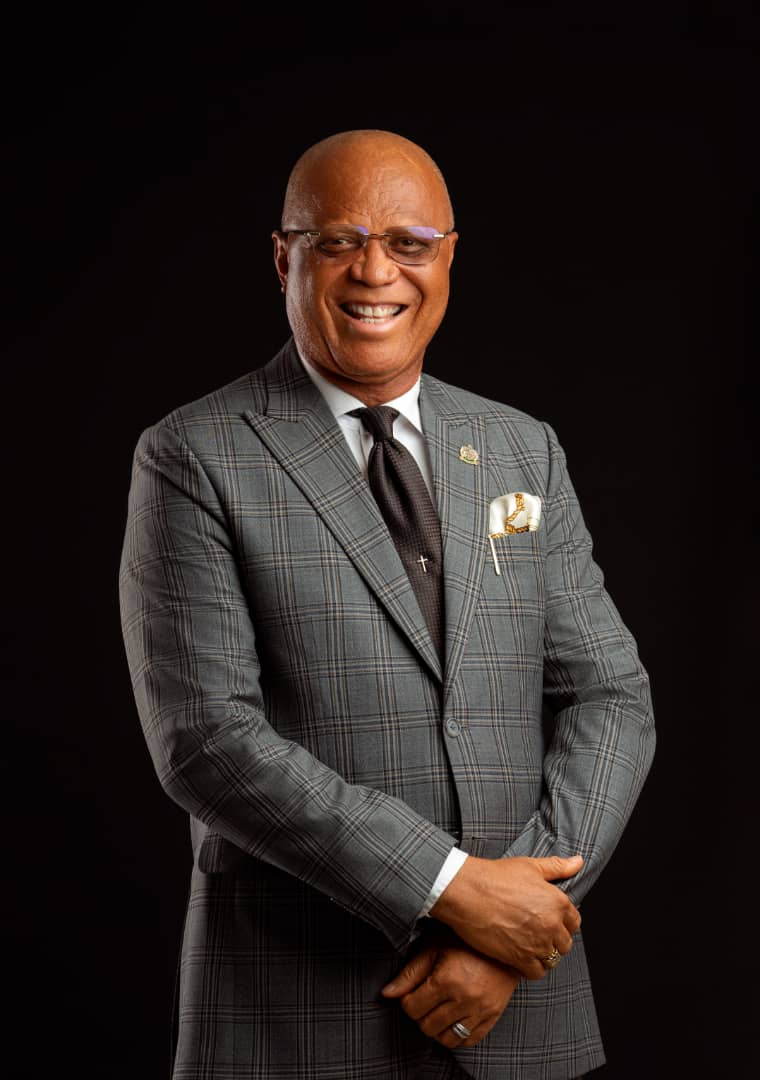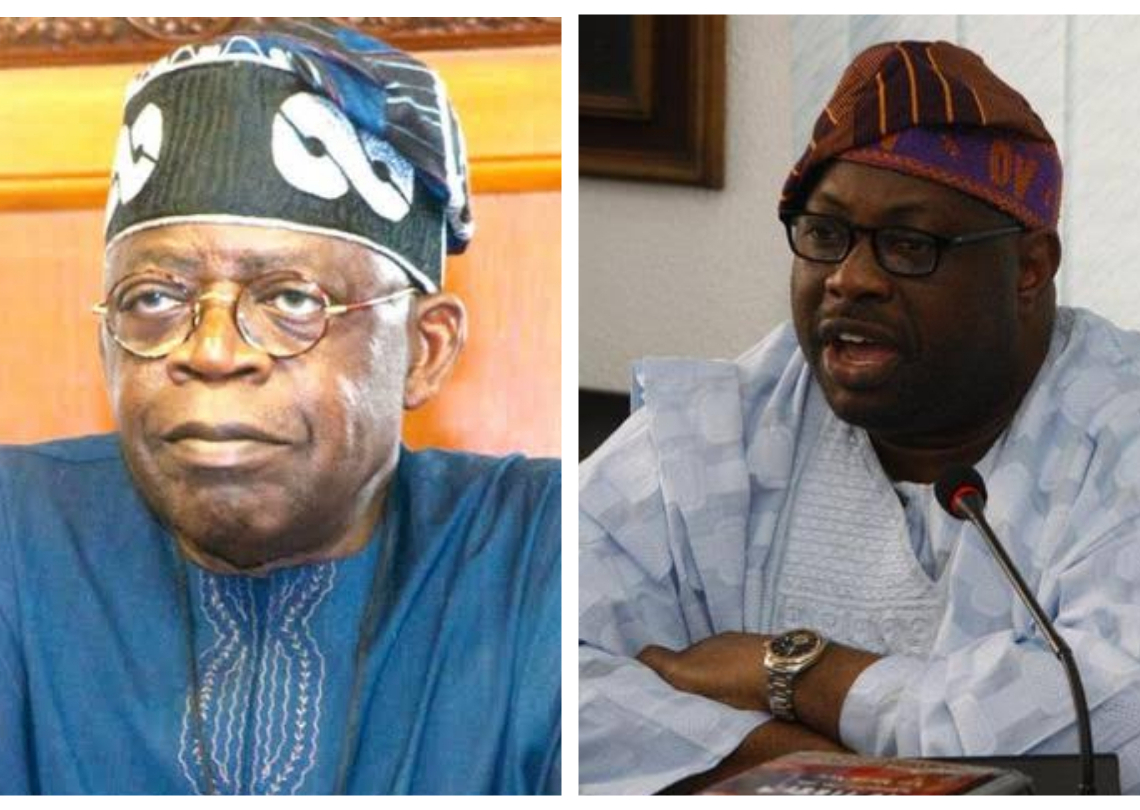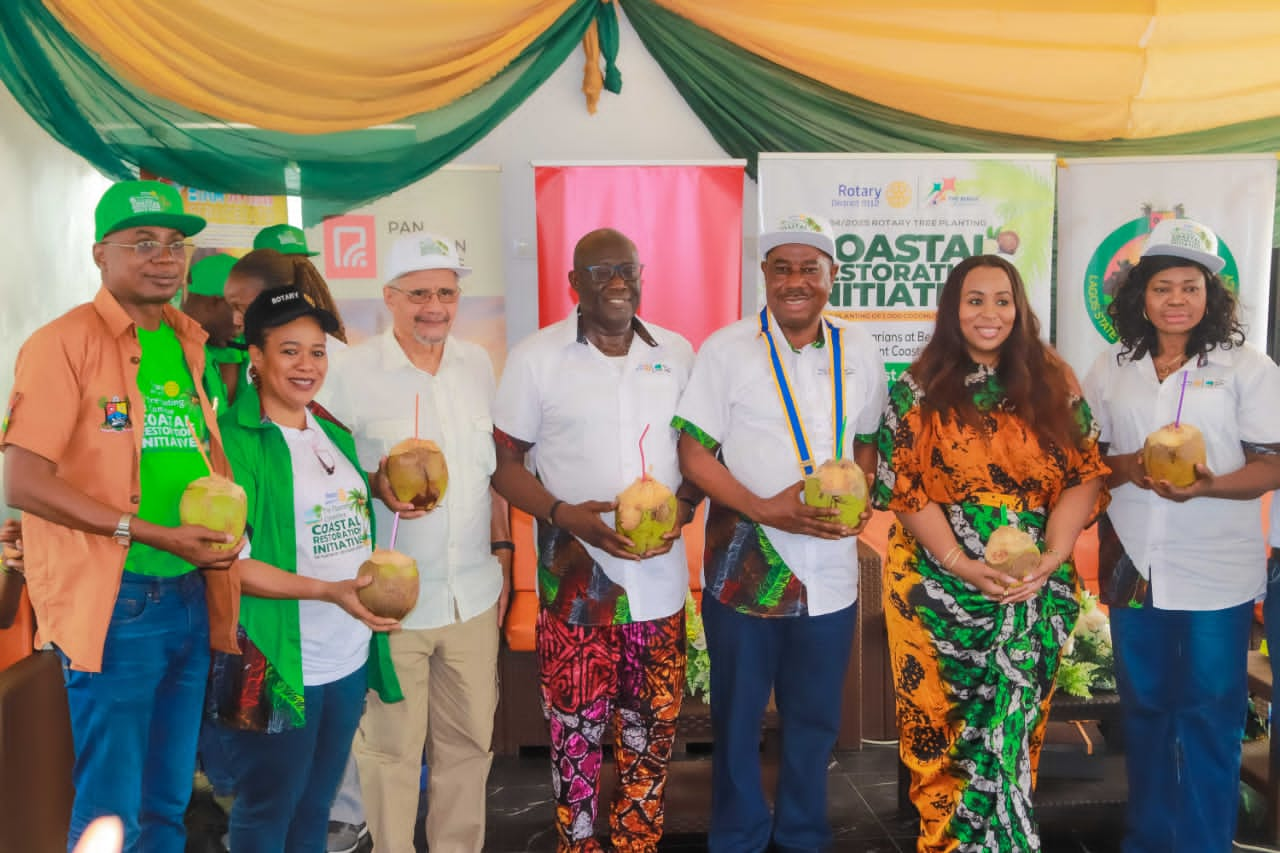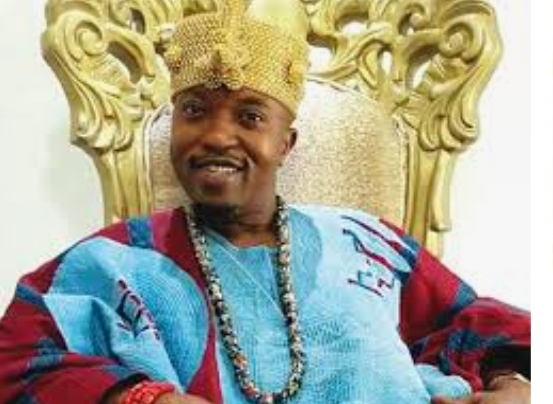Featured
Akwa Ibom 2023: “I’ll Prioritize Job Creation, Rural Development & Agri-business- Umo Eno
Published
1 year agoon
By
Editor
Related
You may like
Featured
Beware of ‘Full Blown Dictatorship, Dele Momodu Cautions Tinubu in New Letter
Published
18 hours agoon
July 26, 2024By
Eric
By Eric Elezuo
Chairman, Ovation Media Group, Chief Dele Momodu, has again written an open letter to President Bola Tinubu, cautioning him against metamorphosis into full blown dictatorship.
As usual, Chief Momodu took the instrumentality of his social media handles to send his message to Tinubu, which is coming barely two after he wrote him the first letter bordering on the need to curtail his spendthrift attitude and embrace empowerment of Nigeria’s teeming youths.
In the letter titled Once Again, An Appeal to President Tinubu, Momodu outlined their days in the struggle for democracy against the military government, wondering why someone, like Tinubu, who had congregated and protested in the past, will turnaround today to say there will be no protest.
Momodu further blamed Tinubu for the present hardship in the country, accusing him of not knowing the difference between running Lagos as governor and running Nigeria as president.
“And let me be frank Sir. You caused it all. You did not realise that a country is much more complicated than a State,” he said, further accusing of having a stranglehold on Lagos for 24 years since he became governor in 1999.
Momodu advised that the proposed protest should be seen as a litmus test for the security agencies, especially as the Department of State Service (DSS), claimed they have unraveled the identities of those wishing to cause mayhem.
“But I’m reasonably assured that any potential threat can be contained and nipped in the bud, since our secret service claims to have discovered the sponsors of mayhem. Such people should be arrested speedily,” Momodu advised.
He finally advised Tinubu to seek friendly advice, and extricate himself from the ‘hawks’ surrounding him as they do not mean well for him.
It would be recalled that the country has been on edge since the masses vowed to embark on a 10-day protest over extreme hardship in the country, beginning from August 1, 2024.
Read Dele Momodu’s letter in full:
ONCE AGAIN, AN APPEAL TO PRESIDENT BOLA TINUBU…
Your Excellency,
For the second time within two weeks, I’m compelled to write you this epistle. As I write this, my mind goes back to my earliest recollection of you as a Senator of the Federal Republic of Nigeria. As a young journalist, you were everyone’s delight. The June 12 Presidential election annulment brought out the best in you as a pro-democracy figure. You spent money and time fighting the military. Our exile years were lived in constant fear and trepidation.
Fast forward Sir. We returned to Nigeria in 1998
You contested the Lagos State Governorship election in 1999, and pronto, you won. Since then, you have been in absolute control of a state described as the California of Africa, and possibly the sixth richest economy in Africa. Lagos is a country on its own…. I’m just trying to let you know that you’ve been a President in Lagos for 24 years before becoming the President of Nigeria.
Unfortunately, things have not been easy for Nigerians (except members of the privilegentsia) since you realized your lifelong ambition. And let me be frank Sir. You caused it all. You did not realise that a country is much more complicated than a State.
I’m sad and embarrassed that a fighter for Democracy is now saying Nigerians will not be allowed to congregate and demonstrate on the streets, something you and I enjoyed during the military regimes, at home and abroad.
I will never support anarchy, after engaging in peace initiatives in Sierra Leone, Liberia and The Gambia. But I’m reasonably assured that any potential threat can be contained and nipped in the bud, since our secret service claims to have discovered the sponsors of mayhem. Such people should be arrested speedily.
Please Sir, go back to your original friends in civil liberties and seek their assistance. Then, use this opportunity to test the strength, security architecture and combat readiness of our security agencies. Ignore the advice of the hawks in your team. They have nothing to lose since they are mostly beneficiaries of what others died for. Resist the temptations of full blown dictatorship…
You’re in my prayers as you bear this cross…
Related
Featured
Rotary International District 9112 Launches Coastal Restoration Initiative, Plants 1000 Coconut Trees in Lagos
Published
1 day agoon
July 26, 2024By
Eric
In a bid to promote its mission of improving the environment, Rotary International District 9112 on Sunday kicked off an environment-saving intervention tagged: Coastal Restoration Initiative at Westside Beach, Okun, Ajah, Lagos, where 1000 coconut trees were planted along the coastal shores of the Atlantic Ocean.
Speaking at the event, the Governor of Rotary International, District 9112 Rotarian Femi Adenekan, said the “initiative is conceived to save the environment as well as reduce the adverse effect of the climate change.”
According to him, “the environment is one of the main focus areas of Rotary International. We need to consciously come to the realization that we need to save our environment. We need to save ourselves. So that in the future, those that will come after us will have life.”
“People assume that the world belongs to them. They have forgotten that they are just tenants on the surface of the earth. If you try to change nature, nature will react, which is the reason we are having a lot of environmental damage in the world. Some of wrong human activities, such as throwing plastics and other items into water or where it ought not to be is causing us environmental challenges. If we don’t take care of our environment, the environment will react and take us out of the surface of the earth,” He said.

The chairman of the District 9112 Tree Planting Committee, Rtn. Gboyega Bada recommended the adoption of an “Every Rotarian Plant a Tree Every Year” policy and also indicated plans for Rotary International District 9112 to propose a Private Bill to the Lagos State House of Assembly to enable all Lagos Residents plant a tree every year for the next five years to address the challenges of climate change.
Rtn Bada stated that the vision of Rotary District 9112 on Tree Planting is to achieve a safer and cleaner environment by planting 10,000 seedlings of Coconut, Mango, Breadfruit, Avocado and other ralated crops that have economic, health and environmental benefits.
The event was well attended by Stakeholders in the Private and Public Sectors. Pan African Towers Ltd, Tolaram Group, Azeez Amida Foundation, Telenoetica Ltd, amongst others were well represented. Past District Governor Tunji Funsho led other Rotary Leaders to give their support. The DG’s wife Rtn Tayo Adenekan, the District Governor elect Rtn Lanre Adedoyin, General Manager of Lagos State Coconut Development Authority, Dapo Olakulehim and Lagos State Parks and Gardens Agency, Club Presidents and Rotarians from the 73 Clubs graced the occasion.
Also speaking at the event, one of the Guest Speakers, the world acclaimed horticulturist, Mr. Andrew Vale of Tolaram Group and The Lagos Free Zone, highlighted the importance of trees, saying; “planting trees improves air quality, reduces air pollution, and illnesses from air pollution. More so, plants produce oxygen and provide shelter, medicine, and many more.”
In his own special remarks, Chairman, LUFASI Park and DG Coconut Naija, Dr. Desmond Majekodunmi, said; “the basic fact about the environment is that whatever you sow, you shall reap. The environment will always treat you, the way you treat it.”
It is of note that the vision of District 9112 on tree planting for this year is to achieve a safer and cleaner environment through the planting of 10,000 seedlings of coconut, mango, breadfruit, avocado and other related crops that have economic, health and environmental benefits.
The event was witnessed and supported by main stakeholders in the industry, agencies and partners which included, Mr Dapo Olakulehin, General Manager, Lagos State Coconut Development Authority (LASCODA), Mr Andrew Vale of Tolaram Group, Channel Scott from Pan African Towers, Azeez Amida Foundation, Telenoetica, The Legend Lifeskills Foundation, Etam Avitat, Lagos State Parks and Gardens Agency (LASPARK) , presidents and members of various Rotary Clubs in District 9112 amongst others.
Rotary leaders who witnessed the event are PDG Tunji Funsho, PDG Kamoru Omotosho, PDG Omotunde Lawson among others.
Related
Featured
Protest: Oluwo Advises Tinubu to Dialogue with Opposition Leaders, CSOs, Labour Leaders, Students, Others
Published
2 days agoon
July 25, 2024By
Eric
The Paramount Ruler of Iwoland,His Imperial Majesty, Oba Abdulrosheed Adewale Akanbi, has called on President Bola Ahmed Tinubu to invite stakeholders for dialogue ahead of August 1st, 2024 planned protest.
Oluwo stated consultation is necessary to avert violent confrontation by inviting the stakeholders for national discourse.
He feared protest might be hijacked by hoodlums to steal and destroy public properties built by our collective patrimony. Oluwo said dialogue becomes reasonable when it’s embraced before protest. He called on Nigerians to learn from Endsars protest that got many properties built with public funds destroyed.
Oba Akanbi asked President Tinubu to extend the invitation to major political opposition parties leaders mostly the Peoples Democratic Party (PDP), Labour Party, labour union leaders, students’ unions, civil society organizations (CSO), notable traditional rulers and other stakeholders to discuss the state of the nation and collate more ideas to address the economic hardship.
Oluwo expressed strong conviction in patriotic opposition political parties leaders to honour such national conversation.
Oluwo affirmed the economic hardship and inflation are global, conveying the need to hold national talks with stakeholders to discuss solutions to the country’s challenges.
A statement released by Oluwo through his press secretary, Alli Ibraheem, reads “At this crucial moment of global economic challenge, Nigeria inclusive, I call on President Bola Ahmed Tinubu to convey a national dialogue most especially with the dog handlers comprising the opposition parties leaders, civil society organizations, labour leaders, students, traditional rulers and religious leaders”
“In a democratic setting,a peaceful protest is guaranteed provided some are not waiting somewhere to hijack it. Protest will not be advisable at this critical moment of tense global economic hardship”
“I’ve strong hope in the opposition leaders to honour national dialogue and contribute intellectual ideas to national development. No patriotic opposition leaders will want Nigeria to be destroyed”
“Even if a protest is held, we will resort to a round table discussion after the road show. Rather than allowing hoodlums to hijack and destroy the nation we are trying to construct, why not embrace dialogue? When we sit together and talk to each other, more virile approaches and solutions may be suggested for application. It will also provide an avenue for the government to reveal their plans in checkmating food crisis and manage the economy to our collective advantage ”
“Different bodies should have representative(s) at such gathering. Those willong to protest should appoint leaders. It shouldn’t be like endars protesters without leader. No harm will be done to them. As a traditional ruler and leader, I’m watching to ensure masses interests are protected and always ready to speak truth to power. Sincere protesters can reach out to notable traditional rulers”
“The inflation is killing. It’s a global phenomenon. I visited Saudi Arabia recently. Prices of goods have gone up acrosa the world. Even the rich are finding it difficult. Addressing the challenge should involve everyone to come together and discusss way forward”
Related


Adding Value: Elevating Your Game by Henry Ukazu

Foreign Mercenaries Involved in Proposed Protest, Says IGP Egbetokun

Adeleke Has Neither Borrowed Nor Draw Security Votes in Running Osun, Says Spokesperson

Beware of ‘Full Blown Dictatorship, Dele Momodu Cautions Tinubu in New Letter

Glo 1 Celebrates Eight Years of Connectivity, Boosts Capacity

Friday Sermon: Monuments of Waste: Abandoned Projects and Ignoble Epitaphs of Corruption

Rotary International District 9112 Launches Coastal Restoration Initiative, Plants 1000 Coconut Trees in Lagos

Nigerian Engineer Wins $500m Contract to Build Monorail Network in Iraq

WORLD EXCLUSIVE: Will Senate President, Bukola Saraki, Join Presidential Race?

World Exclusive: How Cabal, Corruption Stalled Mambilla Hydropower Project …The Abba Kyari, Fashola and Malami Connection Plus FG May Lose $2bn

Rehabilitation Comment: Sanwo-Olu’s Support Group Replies Ambode (Video)

Fashanu, Dolapo Awosika and Prophet Controversy: The Complete Story

Pendulum: Can Atiku Abubakar Defeat Muhammadu Buhari in 2019?

Pendulum: An Evening with Two Presidential Aspirants in Abuja

Who are the early favorites to win the NFL rushing title?

Boxing continues to knock itself out with bewildering, incorrect decisions

Steph Curry finally got the contract he deserves from the Warriors

Phillies’ Aaron Altherr makes mind-boggling barehanded play

The tremendous importance of owning a perfect piece of clothing
Trending
-

 News6 years ago
News6 years agoNigerian Engineer Wins $500m Contract to Build Monorail Network in Iraq
-

 Featured6 years ago
Featured6 years agoWORLD EXCLUSIVE: Will Senate President, Bukola Saraki, Join Presidential Race?
-

 Boss Picks6 years ago
Boss Picks6 years agoWorld Exclusive: How Cabal, Corruption Stalled Mambilla Hydropower Project …The Abba Kyari, Fashola and Malami Connection Plus FG May Lose $2bn
-

 Headline6 years ago
Headline6 years agoRehabilitation Comment: Sanwo-Olu’s Support Group Replies Ambode (Video)
-

 Headline6 years ago
Headline6 years agoFashanu, Dolapo Awosika and Prophet Controversy: The Complete Story
-

 Headline6 years ago
Headline6 years agoPendulum: Can Atiku Abubakar Defeat Muhammadu Buhari in 2019?
-

 Headline6 years ago
Headline6 years agoPendulum: An Evening with Two Presidential Aspirants in Abuja
-

 Headline6 years ago
Headline6 years ago2019: Parties’ Presidential Candidates Emerge (View Full List)

